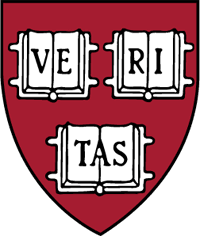 Menu
Menu
Published: 08 Oct 2023 1,482 views
The Harvard University Center for the Environment (HUCE) created the Environmental Fellows program to enable recent doctorate recipients to use and expand Harvard’s extraordinary resources to tackle complex environmental problems. The Environmental Fellows will work for two years with Harvard faculty members in any school or department while also strengthening connections across the University’s academic disciplines.
“Harvard is committed to fostering the development of talented scholars with an interest in environmental research. The Environmental Fellows at Harvard work with some of the University’s leading faculty, creating linkages across research disciplines and professional schools, and benefit from all that Harvard has to offer.”
Dan Schrag, Sturgis Hooper Professor of Geology, Professor of Environmental Science and Engineering, Professor of Public Policy Co-Director, Science, Technology and Public Policy Program, Harvard Kennedy School
Harvard is the oldest institution of higher education in the United States, established in 1636 by vote of the Great and General Court of the Massachusetts Bay Colony. It was named after the College’s first benefactor, the young minister John Harvard of Charlestown, who upon his death in 1638 left his library and half his estate to the institution. A statue of John Harvard stands today in front of University Hall in Harvard Yard, and is perhaps the University’s best known landmark. Harvard University has 12 degree-granting Schools in addition to the Radcliffe Institute for Advan... continue reading

| Application Deadline | 10 Jan 2024 |
| Country to study | United States |
| School to study | Harvard University |
| Type | Fellowship |
| Course to study | View courses |
| Sponsor | Harvard University |
| Gender | Men and Women |
The fellowship includes a salary of $87,500 per year, employee health insurance eligibility, up to $2,500 reimbursement for relocation expenses, and a $2,500 annual allowance for travel and other professional expenses.
HUCE organizes a co-curricular program to ensure that the fellows get to know each other and each other’s work. All fellows join in biweekly dinners along with Harvard faculty and a speaker from amongst the Harvard faculty.
The Environmental Fellows Program is open to anyone with a doctorate or comparable terminal degree awarded between May 2020 and August 2024. HUCE expects to award approximately six fellowships for the 2024 cohort.
Basic Qualifications:
Additional Qualifications:
Optional Documents
Trademark Notice | Harvard University
1. Please complete the online application form by January 10, 2024 at 5 p.m. (ET) and attach the relevant supporting documents as PDFs:
• curriculum vitae including list of publications;
• detailed research proposal where applicants should explain their specific reasons for applying to a Harvard residential environmental fellowship (maximum of five pages, references counted separately). Note: While applicants should discuss the proposal with their potential faculty hosts, the final product should clearly be the work of the applicant; and
• up to three publications/writing samples.
2. Three letters of reference, including one from the applicant’s dissertation adviser. NOTE: The ARIeS application system will only send recommendation letter requests via email after the application has been officially submitted. Please be in touch with your recommenders in advance so that they can quickly upload their letters after they receive the link. It only takes a few minutes for them to do so. Recommenders will have extra time after the deadline (January 19, 2024) to submit letters.
3. A letter of support is also required from the applicant’s host committing to serve as a mentor and explaining his or her commitment to the proposed research, including the provision of office or lab space. Applicants are encouraged to ask their hosts to email letters of reference as PDFs or, if necessary, as Word documents attached to the emails. Hosts also have extra time after the deadline (January 19, 2024) to submit letters and should send them directly to the attention of Cayla Jett at the Center at [email protected].
You will receive an automated email once you have submitted this online form with attachments. The Center will notify applicants individually to confirm receipt of a complete application (online form, letters of reference, and letter of support).
For more details visit: Harvard University website.